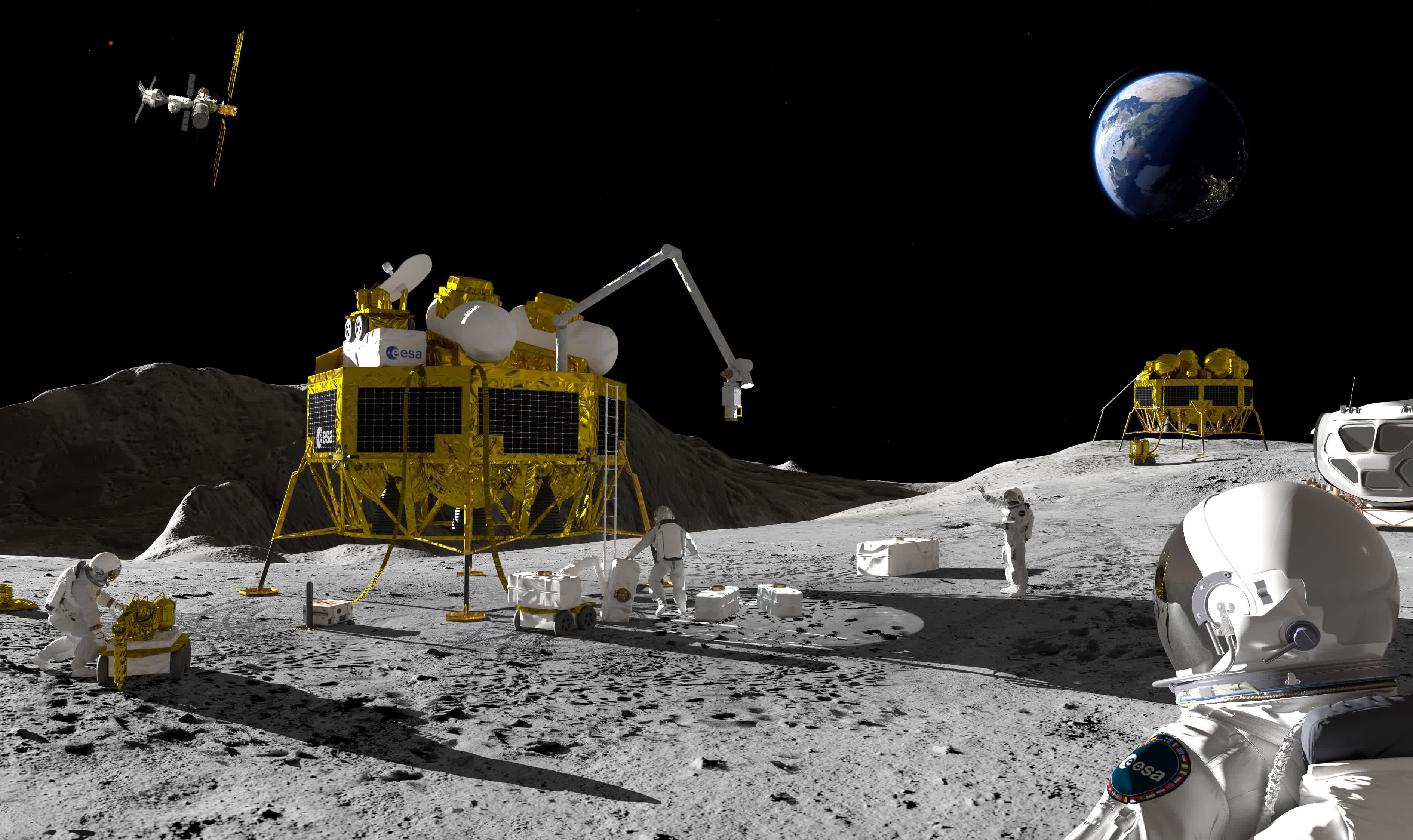In brief: Space agencies from around the world have rekindled their interest in the Moon. Dozens of lunar missions are in the works for the coming decade including individual and joint efforts. There's still plenty of work that needs to be done before these missions can get under way, which could include the Moon getting its own time zone.

Up to this point, Moon missions have operated based on local time zones exported from Earth but that apparently won't be sustainable in the near future with so many international players participating in lunar activities simultaneously. Thus, a common timescale could be in the cards.
Talk of a lunar time zone started during a meeting at the European Space Agency's ESTEC technology center in the Netherlands in November. According to ESA navigation system engineer Pietro Giordano, a joint international effort is being launched to achieve the goal.

It seems there are more questions than answers at this stage. Who would be responsible for establishing and maintaining Moon time? Would it be tied to Earth or exist as its own separate entity? Why not just use Coordinated Universal Time (UTC)?
As the ESA highlights, clocks on the Moon run faster than those on Earth and gain about 56 microseconds per day. The agency also envisions a timescale that is practical for astronauts. "This will be quite a challenge on a planetary surface where in the equatorial region each day is 29.5 days long, including freezing fortnight-long lunar nights," said Bernhard Hufenbach, a member of the Moonlight Management Team.
Once a functional time system has been established for the Moon, it could make developing similar systems for other planetary destinations like Mars a bit easier.
The time initiative is part of a larger effort to create LunaNet, a communications and navigation architecture to expand network capabilities on and around the Moon. A NASA video compares the system to our use of Wi-Fi and mobile networks on Earth, complete with access across multiple nodes.
NASA's Artemis III aims to return humans to the surface of the moon for the first time in more than 50 years, and is currently planned for 2025.
Image credit: Jon Tyson
https://www.techspot.com/news/97781-space-organizations-pushing-universal-moon-time.html